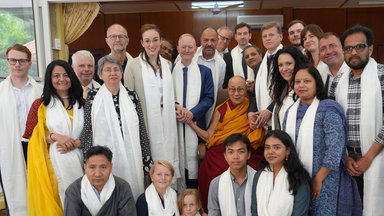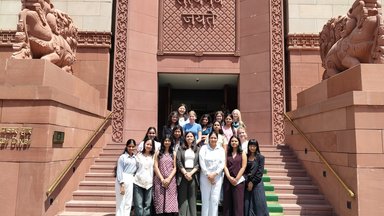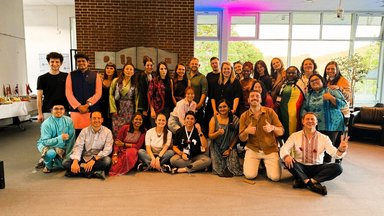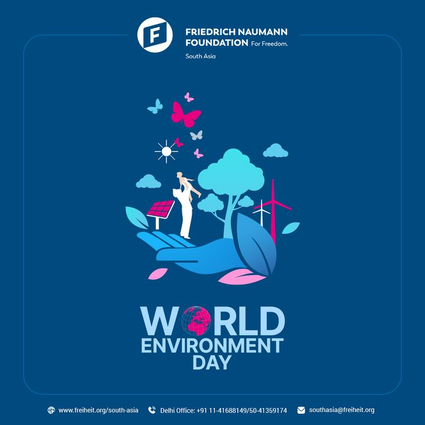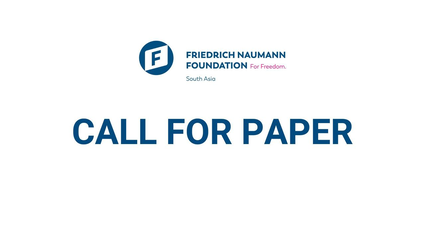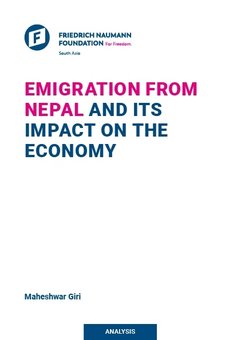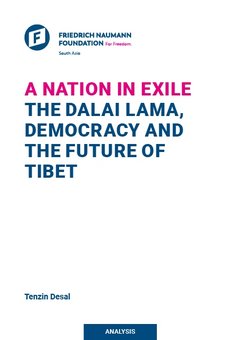South Asia
The Friedrich Naumann Foundation for Freedom (FNF) promotes democracy, human rights, economic freedom, and curbing climate change. In Asia, we have offices in Bangkok, Jakarta, Manila, New Delhi, Seoul, and Taipei. We also work in Malaysia. The FNF India team works with Action Research in Community Health and Development, The Centre for Communication Governance, Centre for Civil Society, Seeking Modern Applications for Real Transformation, Social and Resource Development Fund and many more. Should you have questions or suggestions about our work, please contact us. You can also meet our team here.
News
-
Who Will Mind the Gap? A Disengaged U.S. and a Global Order in Transition
The shaping of a distinctly non-Western agenda does not, however, mean an anti-Western agenda. This is reflected, for instance, in India’s nuanced shift from hitherto conventional views of seeing the West in adversarial terms. This was further echoed by India’s External Affairs Minister, S. Jaishankar dismissing the ‘West as bad guy’ as a dated trope. Interestingly, this marks a continuity rather than a departure as the history of Southern multilateralism reveals. It may be recalled that despite its strident anti-West posturing, the New International Economic Order (NIEO) debates of the 1970s, were not framed in confrontational terms. Rather, the Charter of NIEO, for instance, called upon states to ‘cooperate in facilitating more rational and equitable international economic relations’.
-
Ein Volk hofft auf die Rückkehr
Mit 90 Jahren bleibt der Dalai Lama Symbol der Hoffnung im Exil. Trotz Chinas Kontrolle über seine Nachfolge hoffen viele Tibeter auf seine Rückkehr und die Zukunft ihrer Kultur und Identität.
-
With the Dalai Lama now 90, an unavoidable question looms: what comes next?
At 90, the Dalai Lama symbolizes resilience, unity, and hope. His legacy inspires Tibetans and the world to defend identity, truth, and compassion in the face of rising challenges.
-
Podiumsdiskussion zur India Week in Hamburg bei Hapag Lloyd: „Empowering Diversity, Arbeitsmarkt und LGBTQIA+ Inklusion“
Bei der India Week Hamburg diskutierten Expert:innen über LGBTQIA+ Inklusion: Vielfalt ist wirtschaftlich sinnvoll, fördert Innovation & stärkt Unternehmen weltweit. #fnfsouthasia
-
Bridging Continents Through Dialogue
FNF South Asia’s study tour to Dharamshala united leaders from Europe and South Asia in a powerful exchange on democracy, culture, and the Tibetan cause—where spirit met policy in the Himalayas.
-
From Dialogue to Leadership: The Female Forward Experience
16 young women from 5 countries came together in Delhi to explore leadership, democracy & connection. Female Forward 2025 was more than a study tour, it was a spark for future changemakers.
-
A Transformative Journey in Leadership



